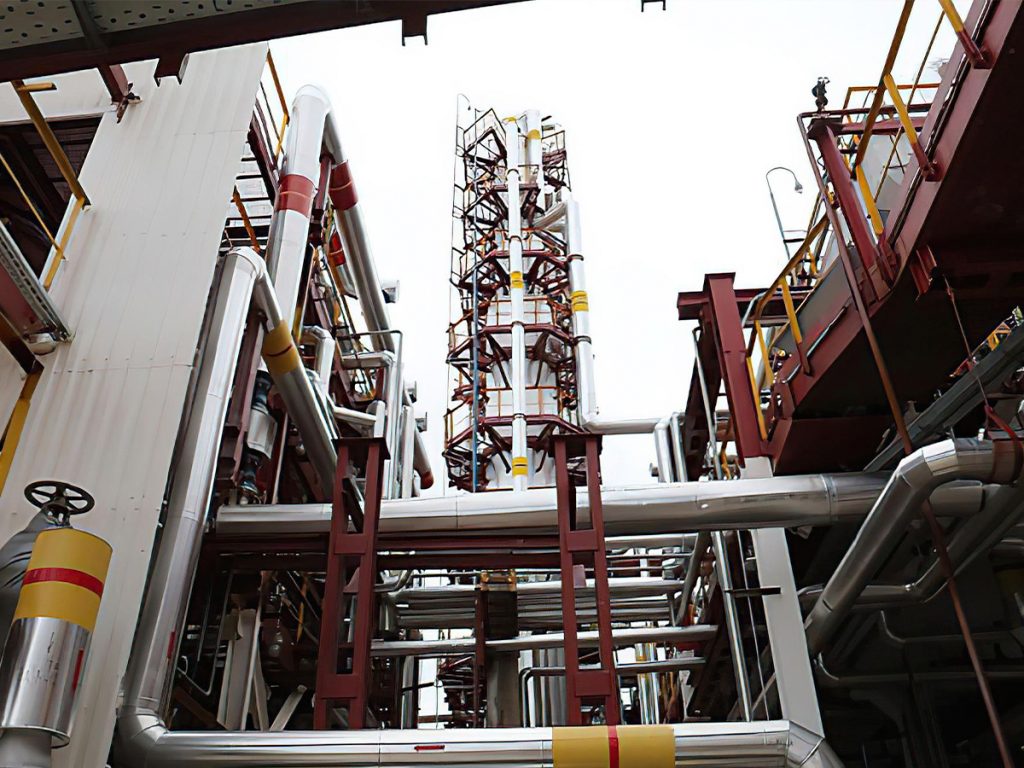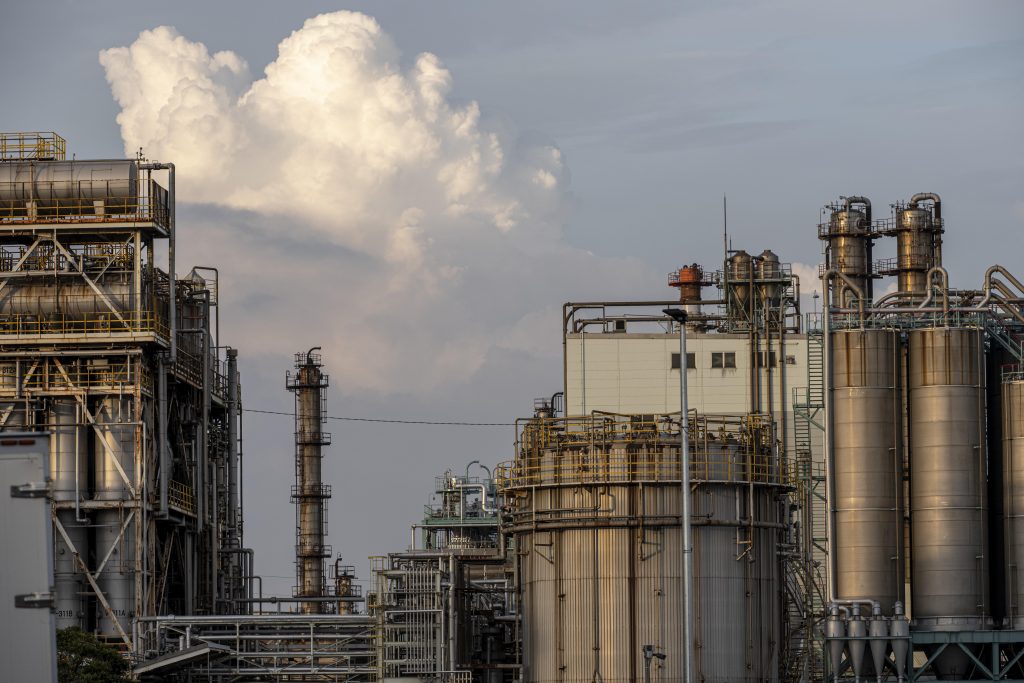In today’s global energy sector, Gas Refineries erection commissioning in Oman has emerged as one of the most crucial steps in ensuring that complex facilities begin operations smoothly, efficiently, and in full compliance with international standards. This phase bridges the gap between construction and steady-state operations, setting the foundation for long-term productivity, safety, and profitability in the gas refining industry.

Understanding Erection and Commissioning in Gas Refineries
Erection and commissioning represent the final stages of setting up a refinery. Erection focuses on assembling, installing, and integrating mechanical, electrical, and control systems. Commissioning, on the other hand, validates the readiness of each system, ensures compliance with performance benchmarks, and tests operational safety. Together, these stages transform a construction site into a fully functional industrial asset.
The Role of Oman in the Global Gas Refining Landscape
Oman’s strategic location, abundant natural gas reserves, and commitment to energy diversification have positioned it as a regional hub for refining and petrochemicals. With significant investments in infrastructure, the country has become a preferred destination for refinery projects where international engineering standards meet local expertise.
Key Steps in Gas Refinery Erection and Commissioning
Executing refinery erection and commissioning involves a structured process. These steps ensure that systems are reliable, sustainable, and efficient:
- Planning and Pre-Commissioning
- Review engineering designs and prepare checklists.
- Conduct site inspections to ensure compliance with construction codes.
- Verify that all auxiliary systems are installed and ready.
- Mechanical Completion
- Inspect piping, vessels, and mechanical units for integrity.
- Conduct hydrostatic tests, pressure checks, and quality inspections.
- System Integration
- Align rotating machinery such as pumps and compressors.
- Verify connections between process units, control systems, and safety equipment.
- Cold Commissioning
- Run dry tests to verify system readiness without introducing gas.
Inspect automation systems, interlocks, and alarms.
- Run dry tests to verify system readiness without introducing gas.
- Hot Commissioning
- Introduce gas feedstock under controlled conditions.
- Monitor pressure, temperature, and operational stability.
- Performance Verification
- Validate efficiency, safety compliance, and environmental standards.
- Hand over detailed reports to stakeholders.
- Handover and Training
- Prepare documentation including inspection reports and certifications.
- Train operating personnel on troubleshooting and emergency protocols.
Safety and Environmental Compliance
Oman enforces rigorous safety standards aligned with global frameworks such as API, ASME, and ISO. Every refinery project must ensure:
- Fire and gas detection systems are functional.
- Pressure relief and safety valves are calibrated.
- Emission levels are monitored in line with environmental regulations.
Importance of Skilled Contractors
The success of a refinery project depends on expert contractors who can manage technical complexities. Engaging specialized Gas Refineries erection commissioning contractors ensures seamless coordination between engineering, procurement, and construction teams. Their experience minimizes delays, prevents cost overruns, and enhances plant reliability.
Maintenance and Long-Term Reliability
Even after successful commissioning, maintenance plays a vital role in sustaining operational efficiency. Through structured schedules and predictive monitoring, contractors address wear and tear before it escalates into major breakdowns. Services such as Gas Refineries erection commissioning maintenance are designed to extend equipment lifespan and ensure uninterrupted refinery operations.
Supporting Systems in Refineries
While the primary refining units handle the core processes, it is the supporting systems that ensure the refinery operates smoothly and efficiently. Facilities such as boilers, cooling towers, water treatment plants, power supply systems, and storage tanks act as the backbone of operations, providing the utilities and resources necessary for continuous production.
During commissioning, the integration of these auxiliary systems is just as critical as the main process units. Proper synchronization of steam generation, cooling capacity, treated water supply, and storage management is essential to maintain plant stability, safety, and efficiency.
By ensuring seamless commissioning of supporting systems, refineries can achieve higher reliability, reduce downtime, and build a strong foundation for long-term success.
Training and Knowledge Transfer
Operators must be trained to handle emergencies, operate control systems, and manage critical equipment. By equipping teams with advanced skills, refineries ensure continuity and reduce the risk of operational errors. This is where the role of a Gas Refineries erection commissioning maintenance contractor becomes invaluable, offering structured training programs alongside technical services.
Technological Innovations in Commissioning
The industry is increasingly adopting digital tools such as:
- 3D Laser Scanning for accurate equipment alignment.
- IoT Sensors for real-time monitoring.
- AI-based Predictive Maintenance for proactive issue resolution.
These innovations reduce downtime, improve safety, and enhance overall plant productivity.
Midway Insight
While the technical scope of commissioning is vast, the core objective remains unchanged: ensuring safe, efficient, and sustainable refinery operations. At this stage, Gas Refineries erection commissioning in Oman becomes more than a process, it is a cornerstone for the nation’s industrial growth and energy security.

Global Standards and Local Adaptation
Oman’s oil and gas sector follows internationally recognized benchmarks such as API 650 for storage tanks and ASME standards for pressure vessels to ensure quality, safety, and global compliance. These standards help maintain reliability and efficiency across projects while positioning Oman in line with international best practices.
At the same time, projects also integrate local codes and guidelines to reflect the country’s environmental commitments, labor regulations, and regional conditions such as high temperatures and challenging site environments. This local adaptation ensures that global practices are not just applied directly, but carefully adjusted to meet Oman’s unique operational and regulatory landscape.
By combining international standards with regional requirements, Oman achieves a balanced approach, delivering projects that are both globally competitive and locally sustainable.
Documentation and Reporting
Every stage generates crucial documentation, including:
- Quality assurance reports.
- Inspection certificates.
- Maintenance manuals.
- Performance validation records.
This structured documentation ensures accountability and compliance.
Challenges in Gas Refinery Commissioning
Despite advanced planning, challenges often arise:
- Complex Equipment Integration: Aligning machinery, pipelines, and control systems is technically demanding.
- Harsh Environments: Desert heat and dust can affect equipment performance and workforce efficiency.
- Tight Timelines: Operators aim to start production quickly, but rushing may compromise safety.
- Regulatory Standards: Adhering to Omani regulations and international codes requires meticulous compliance.
Addressing these challenges requires contractors who can adapt, innovate, and deliver reliable solutions.
Future of Gas Refineries in Oman
Oman is steadily expanding its gas refining capacity to meet domestic demand while boosting export potential. Significant investments are being made in modernizing infrastructure and adopting advanced technologies that improve efficiency and reduce environmental impact.
With the global shift toward cleaner energy, Omani refineries are expected to focus heavily on sustainability, emission control, and digital innovation. Commissioning will play a more strategic role, ensuring not just operational readiness, but also integrating smart systems, energy efficiency, and compliance with environmental standards from the very beginning.
This approach positions Oman’s refining sector for long-term growth, balancing economic development with global energy transition goals
FAQs
Q1. What are erection and commissioning charges?
They are costs associated with assembling equipment (erection) and making it operational (commissioning), covering labor, testing, and technical support.
Q2. What is erection in the oil and gas industry?
Erection involves the installation and assembly of mechanical and structural components like pipelines, pressure vessels, and machinery in refineries.
Q3. What is the difference between commissioning and installation?
Installation is the physical setup of equipment, while commissioning involves testing, calibration, and verification to ensure operational readiness.
Q4. What are the tolerances for piping erection?
Piping tolerances typically follow ASME standards, ensuring proper alignment, welding quality, and pressure integrity.
Building Reliable Refineries for the Future
From initial design to full-scale operation, commissioning defines the long-term reliability and safety of a refinery. By implementing best practices, leveraging advanced technologies, and engaging expert contractors, Oman continues to establish itself as a regional leader in gas refining.
At the heart of this journey, Gas Refineries erection commissioning in Oman ensures that facilities are not just operational, but optimized for efficiency, compliance, and sustainability, securing energy for today and future generations.
